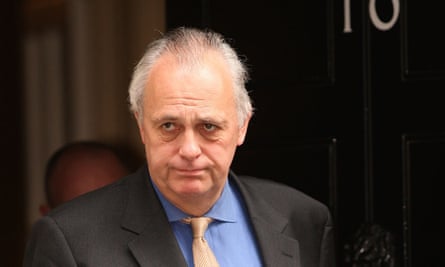More than 120 leading economists, among them former government, UN and World Bank officials, have lambasted the UK government’s response to the refugee crisis, calling it seriously inadequate, morally unacceptable and economically wrong.
In an open letter to David Cameron, the economists argue that as the world’s fifth-largest economy, the UK “can do far more” and are calling on the government to take a “fair and proportionate share of refugees, both those already within the EU and those still outside it”.
They are also calling for safe and legal routes to and within the EU, including the UK, and “fair and thorough procedures to determine eligibility for international protection wherever it is sought”.
The economists, who include Mark Malloch-Brown, a former UN deputy secretary general and government minister, and Peter Sutherland, the former director general of Gatt and the World Trade Organisation, wrote: “The costs in human wellbeing of the refugee crisis, however calculated, are so extremely high that it is morally unacceptable for the UK not to play a fuller part in taking in refugees.”
It is the first time that such a large group of economists have criticised UK government immigration policy, and follows other open letters to the prime minister from the UK’s 350 top judges and lawyers, and 27 charities and NGOs including Oxfam, Amnesty International and the Refugee Council.
David Cameron’s government has agreed to take up to 20,000 Syrian refugees over five years, from the camps on the borders of the war-torn country. More than 1,000 have arrived so far.
The numbers are dwarfed by the 1.1 million refugees taken in by Germany last year and 160,000 in Sweden, the highest in Europe as a proportion of the population. However, they and other EU countries are now trying to drastically reduce their refugee inflows.
The European Central Bank president, Mario Draghi, told the World Economic Forum last month that if Europe works together it can turn the challenge of tackling the refugee crisis into an opportunity that will boost growth.
The economists argue that the UK’s offer of 20,000 resettlement places to Syrians outside the EU is “too low, too slow and too narrow”. They noted that the UK in its recent history has “taken in far higher numbers of asylum seekers and refugees and at far greater speed and managed it well”.
They write: “Refugees should be taken in because they are morally and legally entitled to international protection, not because of the economic advantages they may bring. Nonetheless, it is important to note that the economic contribution of refugees and their descendants to the UK has been high.”

They noted that the thousands of Ugandan Asian refugees, whose arrival in Britain in 1972 was greeted with initial anxiety, went on to make an “extraordinary contribution” to British life, as Cameron himself has observed.
One of the signatories, Prof Lawrence King, of Cambridge University, said: “Britain is the world’s fifth-richest economy. It is a travesty to suggest that the best Britain can do in the midst of the worst refugee crisis since the second world war is to take 4,000 refugees annually over five years, which amounts to 12 a day. Britain has actually accepted fewer refugees in the past two years than it accepted per year in the previous 16 years.”
The economists also called the UK’s refugee policy “misguided” as it tried to deter refugees from travelling to the EU by refusing to accept those who have fled to Europe. They said in the letter: “That misunderstands the intolerable ‘push’ factors that are forcing people out of countries of persecution and from neighbouring countries in which a humanitarian disaster is escalating in the camps. It is the parallel of the government’s earlier policy of trying to ‘deter’ travel by scaling down search and rescue in the Mediterranean – a failed policy which cost lives.”
Last week, the government performed a partial U-turn when it agreed to take in some unaccompanied Syrian refugee children who are already in Europe, and set up a £10m fund to support them. But Cameron insisted the focus remained on taking child refugees from camps in the Syria region.
Lord Malloch-Brown said: “The refugee crisis is a challenge not just to life but to Europe’s values and responsibilities, its respect for international law and its standing in the world. The lasting damage to its international authority if it betrays its responsibilities shouldn’t be underestimated.”
Another signatory, Sir Richard Jolly, a former assistant secretary general of the UN, said: “The human cost of failure is far higher than even the most pessimistic financial cost.”
Prof Guy Standing of Soas added that welcoming more refugees would be a “sound economic policy, not just because many of the refugees will prove energetic, innovative and resourceful, but because they will help revive the image of Britain in the world, so that people will be more inclined to ‘buy British’ and invest in Britain. The costs set against the longer-term benefits would be minimal”.
Analysis published last month by the International Monetary Fund found that the influx of refugees into Europe could deliver a long-term economic boost to the EU if they are well integrated into the job market.
Signatories to the letter also included Prof Ian Goldin, former vice-president of the World Bank, John Eatwell, founder of the Institute for Public Policy Research, and Ha-Joon Chang, the bestselling author of books such as Economics: The User’s Guide.
An estimated 250,000-300,000 people have been killed and 10 million displaced since the Syrian crisis erupted nearly five years ago.

Comments (…)
Sign in or create your Guardian account to join the discussion